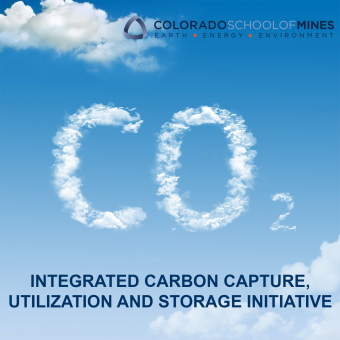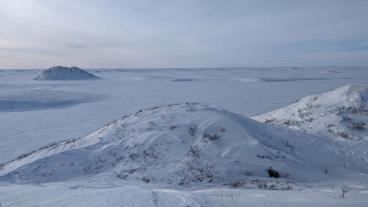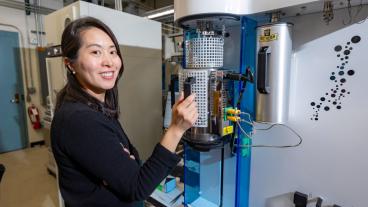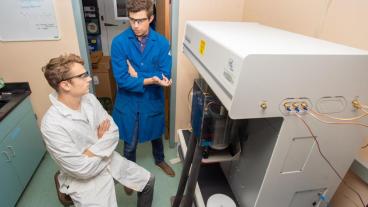Colorado School of Mines launches Integrated Carbon Capture, Utilization and Storage Initiative

Global interest in carbon capture, utilization and storage is unprecedented as one of the key strategies for addressing climate change. The need for detailed scientific and engineering research, coupled with cross-cutting work on policy, markets and regulation of the technology is equally critical.
To address this challenge, Colorado School of Mines has launched the Integrated Carbon Capture, Utilization, and Storage (CCUS) Initiative. The new initiative was made possible by generous support from the William and Flora Hewlett Foundation.
Mines is one of the world’s top technical research universities in areas related to energy, natural resources and the environment. The CCUS initiative will be interdisciplinary across Mines departments, led by its Office of Global Initiatives and the Payne Institute for Public Policy.
“Thanks to the William and Flora Hewlett Foundation we are thrilled to launch a world-class CCUS program at Mines,” said Morgan Bazilian, director of the Payne Institute. “It will serve as a key resource for decision makers across the energy sector. Mines will be able to serve as a global and national center of excellence on the topic, and provide data, teaching, and trusted insights to academia, government, the public, and industry.”
The Payne Institute has hired a new program manager, Laura Singer, to help lead the effort. Singer joins the Payne Institute after five years of oil market modeling at the U.S. Department of Energy’s Energy Information Administration (EIA), and has a background in economics and policy analysis.
Through the new initiative, Mines looks to bring its deep expertise in subsurface reservoir science and engineering, chemical and mechanical systems, and environmental engineering to the challenge of bringing CCUS projects to the scale required to help mitigate climate change. Mines faculty have been working in the realm of CCUS for decades, particularly for enhanced oil recovery and utilization of CO2. Active research is being conducted by more than 50 faculty members in related novel and promising technologies. Critical to all approaches is the need for further detailed scientific and engineering research, closely coupled with cross-cutting work on policy, markets, environment, social license, and regulation.
“As a public university with a strong emphasis on applied research and educating students to help lead the energy future, Mines is actively engaged in multiple aspects of the CCUS chain,” said John Bradford, vice president of global initiatives at Mines. “Our faculty provide relevant expertise that spans from fundamental chemistry to subsurface reservoir evaluation to reactor engineering, and we cultivate a collaborative working environment across disciplines.”
The initiative will be supported by the CCUS@Mines Task Force, composed of leaders from industry and government agencies actively working in the CCUS sectors. CCUS@Mines will provide guidance as Mines consolidates its CCUS initiative to a major focus area that includes a graduate curriculum for a new CCUS-focused program, student recruitment, key research topics that fit Mines’ expertise and a funding model for a CCUS research center.




